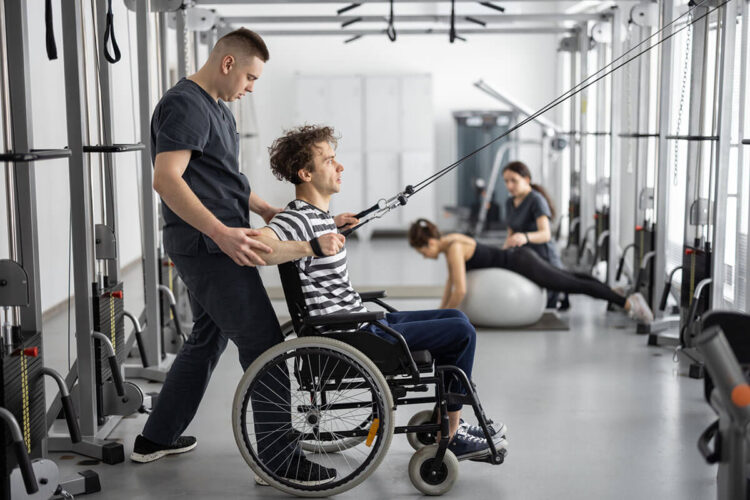By Ben Kerrigan-
The UK government has launched a consultation on Disability Action Plan, which brings together ideas and action across Government to make disabled people’s lives easier.
Plans include raising awareness of life-changing tech for disabled people, mandatory disability awareness training for taxi drivers, autism-friendly programmes for cultural and heritage sites
Plans designed by Ministers to make the UK a more inclusive society in the long term.
Among the practical measures proposed in the fully accessible consultation include ensuring businesses are aware of disabled people’s needs – including Guide Dog access needs – to allow all disabled people to live, work and shop freely and support for local authorities to ensure the playgrounds they build or refurbish are accessible for disabled children.
The proposals will inform the Government’s Disability Action Plan later this year, laying the foundations for longer term change.
The British government also plans to raise the profile of assistive technology to ensure more disabled people have access to life-changing tech – Legislating for mandatory disability awareness training for taxi and private hire drivers to unlock greater travel freedom for disabled people .
Encouraging more autism-friendly programmes in the cultural and heritage sectors to drive greater inclusivity .
There are also wider plans to adjust the court system to improve reasonable adjustments so that more disabled people can be on juries improving diversity and breadth of experience – Implementing the British Sign Language (BSL) GCSE, over a year after the BSL Act was introduced, giving thousands of pupils communication and visual memory skills that will be an advantage to them for the rest of their lives – Exploring the feasibility of Great Britain hosting the Special Olympics World Summer Games in 2031.
The Disability Action Plan sits alongside the Government’s National Disability Strategy which sets out our longer-term vision to improve disabled people’s lives for the better.
Minister for Disabled People, Health and Work, Tom Pursglove MP, said:
”Our Disability Action Plan will lay out practical measures we can implement here and now to improve the lives of disabled people.
From leading the way globally with assistive technology to improving inclusivity and accessibility across sport, travel and culture, the Plan will also be important in setting the stage for longer term change.
We want disabled people to be at the heart of decision making and I would encourage anyone interested to respond to this consultation so the views of disabled people across the country are front and centre of our final Disability Action Plan.
The Plan builds on the Government’s achievements over the last year on education, work, leisure, and rights for disabled people. This includes supporting the passage of landmark legislation: the Down Syndrome Act and British Sign Language (BSL) Act – and a consultation to support the introduction of a new BSL GCSE.
The overarching focus on disability has also ensured over 2,000 miles of King Charles III England Coast Path is accessible, while the government has delivered an additional £1 billion for the education of children and young people with more complex needs.
The consultation will run for 12 weeks and be open for anyone to comment. This will ensure the Plan is informed by the experience and views of disabled people, disability organisations and charities as well as other interested parties.
Chair of the Disability Unit West Midlands Regional Stakeholder Network, Louise Mckiernan said:
”I welcome the Government’s commitment to their new Disability Action Plan and their intention to take immediate and practical actions to improve the lives of disabled people across the UK.
The launch of this consultation is an important opportunity for disabled people in particular to have their say and to help shape the Government’s short-term plans.
I would encourage as many disabled people, disability organisations and other interested parties as possible to take part in this consultation exercise to ensure their voices are heard”




